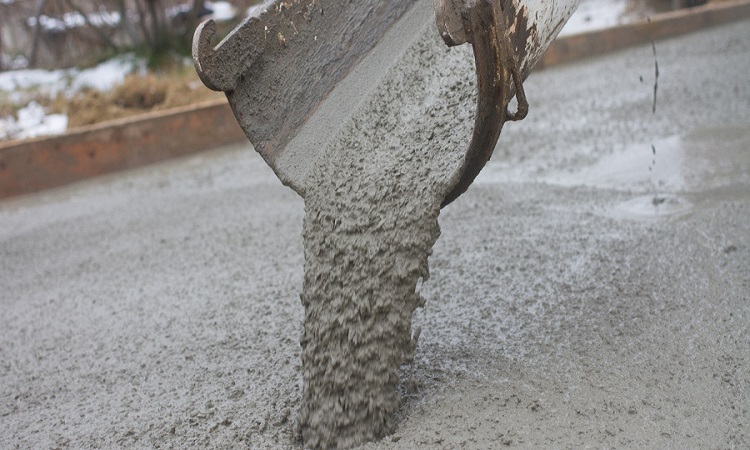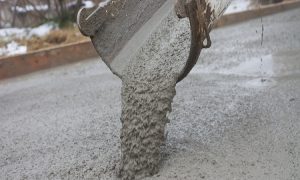Different Quality tests on concrete are performed as a part of quality control of the concrete structures. Concrete quality tests such as slump tests, compressive strength tests, permeability tests, etc. are used to assure the concrete quality that is supplied for a given specification. All these different tests on quality of concrete give an idea about the characteristics or properties of concrete such as workability, durability, strength, air content, permeability, etc.
Test for Concrete Quality Check
The concrete quality test determines their respective concrete quality results. Hence, it is not possible to conduct all the tests to determine the quality of concrete. We’ve to decide the best tests that can give a good and correct judgment of the concrete quality. The primary quality test determines the variation of the concrete specification from the required and standard concrete specifications. The concrete quality tests ascertain/ensure that the best quality concrete is placed at the construction site so that concrete structural members of desired strength are obtained. Below mentioned are the quality tests conducted on fresh concrete & hardened concrete.
Quality Tests on Fresh Concrete
The most common quality tests on fresh concrete are:
Workability Tests
The workability of a concrete mixture is measured by, Vee-Bee consistometer test, Compaction factor tests, and Slump test.
Air Content
It measures the total air content in a sample of fresh concrete but doesn’t indicate what the final in-place air content is, because a certain amount of air is lost in transportation, consolidating, placement, and finishing.
Setting Time
The action or process of changing mixed cement from a fluid state to a solid-state is called “Setting of Cement”.
Initial setting time is defined as the period as elapsing between the time when water is added to the cement and the time at which the needle of 1 mm2 section fails to penetrate the test block to a depth of about 5 mm from the bottom of the mold.
The final setting time is defined as the period elapsing between the time when water is added to cement and the time at which a needle of 1 mm2 section with 5 mm-Ø attachment makes an impression on the test block.
Other tests conducted on fresh concrete are:
- Segregation resistance
- Unit weight
- Wet analysis
- Temperature
- Heat generation
- Bleeding
Tests on Hardened Concrete
The most common quality tests on hardened concrete are:
Compressive strength
The test of compressive strength of the concrete cube gives an idea about all the properties or characteristics of the concrete.
Tensile Strength
The test of tensile strength of the concrete is one of the basic & important properties which mainly affect the extent & size of cracking in structures. Moreover, the concrete is very weak in tension because of its brittle nature. Hence, it is not expected to withstand the direct tension. So, member of concrete develops cracks when tensile forces exceed their tensile strength. Hence, it is necessary to determine the tensile strength of concrete to determine the load at which the concrete members may crack.
Modulus of elasticity
The modulus of elasticity of concrete is the ratio of stress to the strain of the concrete under the application of loads.
Permeability tests on concrete
When concrete is permeable it can cause corrosion in reinforcement in presence of oxygen, moisture, CO2, SO3, etc. this formation of rust due to corrosion becomes nearly six times the volume of the steel oxide layer, due to which cracking develops in reinforced concrete and spalling of concrete starts.
In situ test on concrete
There are various in-situ tests conducted on hardened concrete, both destructive and non-destructive. Some of them are concrete pull-out tests, Break-off tests, Schmidt hammer tests. Other quality tests for concrete are conducted to test the following:
- Modulus of rupture
- Density
- Shrinkage
- Creep
- Freeze/Thaw resistance
- Resistance to aggressive chemicals
- Resistance to abrasion
- Bond to reinforcement
- Absorption
Read More:-
- Quality Control of Concrete Works
- Cold Weather Concrete – Objective, Principles and General Provisions for Cold Weather Concreting
- Mass Concrete – Concrete Mix Parameter, Production, Transportation and Placement for Mass Concrete
- What is Hot Weather Concreting? Preventive Measures in Hot Weather Concreting
- Checklist for Pumped Concrete, Site Planning, and Precautions
- What is Pumped Concrete? Advantages and Disadvantages of Pumped Concrete
- What is Compaction of Concrete? Its Methods, Guidelines and Duration


